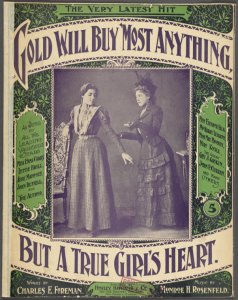"You.. can be a millionaire.. and never pay taxes! You can be a millionaire.. and never pay taxes! You say.. Steve.. how can I be a millionaire.. and never pay taxes? First.. get a million dollars. Now..."-Steve Martin
Kiplinger's today has an article with the title "
How to Be a Millionaire by Age 25." Sounds good, although I'm a little late.
Here is the problem I have with this kind of article. It assumes that by following the example of someone whose magical mix of the right idea at the right time with the right set of circumstances will bring you the same result. We tell the stories of 25-year-old millionaires not because they are commonplace, but because they are rare. Yet in the telling, we make it sound as though there is a simple formula to follow in their footsteps. You may learn something from their stories that you can apply to your life, but in a complicated world you will face many different challenges that will determine your likelihood of striking it rich, having just enough, or having your business fold.
You can read all about Mark Zuckerberg and his Facebook invention, but does that mean that you too will find yourself with just the right idea at the right moment with the right set of skills to implement it, the right amount of buy in, not to mention the blind luck factor?
As Jean Twenge, author of
Generation Me, wrote, “One of my students, who wasn’t more than 22, noted during a class presentation that ‘there are lots of people our age who are CEOs of their own companies.’ He probably read a profile or two of one of these rare beasts in a magazine and, fueled by the ‘you can be anything’ mythos, decided that this was commonplace.”
And why wouldn't he if the headline itself told him outright that he could do it too?
In 1999, college freshmen predicted they would be earning, on average, $75,000 a year by the time they were 30. This was at a time when the average salary of a 30 year old was $27,000.
This cheerful generation ran up its credit cards in anticipation of their inflated salary expectations, bless their hearts. In 2008, 84% of college undergrads had at least one credit card. The average balance of undergraduate credit cards was $3,173 and the average senior now graduates with $4,100 in debt.
The self-esteem generation’s expectations are so sky high that, in Twenge’s words, “we will probably get less of what we want than any previous generation.”
It occurs to me that financial success is the most likely area to receive this kind of aspirational treatment. We don't, as a rule, print a biography of the President of the United States detailing his climb to the top with the headline "How You Can Be the President of the United States." We do not see lots of articles on Oprah Winfrey and how she became one of the wealthiest and most powerful broadcasters with the headline, "How You Can Found a Media Empire by Age 40." We don't see lots of stories about Oscar winners with the headline: "How You Can win the Oscar" or sport stars with the headline, "How You Can Win an Olympic Gold Medal."
These are pinnacles of success, human beings do reach them, and they have interesting stories of how they got there, and yet we are not constantly asked to imagine that we can easily do the same by following a few simple steps.
I'm interested to know what you think-- because I don't have the answer myself-- why do we treat business success and financial wealth in a different way than other kinds of success? Does it, in some way, diminish the achievement of the 25-year-old millionaire to imply that anybody with an idea and a garage can reach the same level of success?












